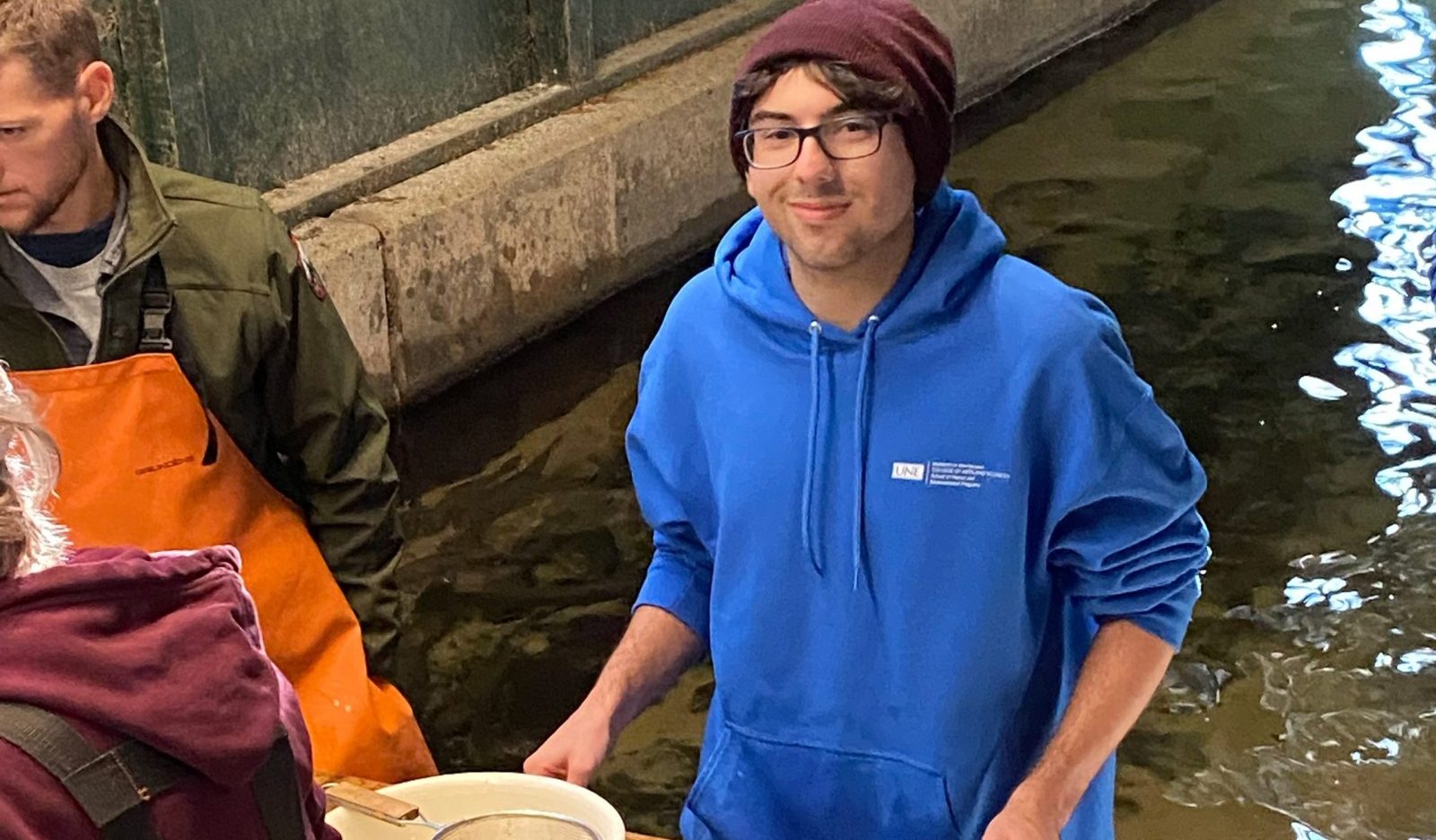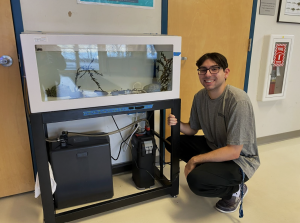
Building aquaculture systems in Maine’s classrooms
Contributor: Brian Will is a Maine Sea Grant 2022-23 undergraduate intern. He has been working with Maine Sea Grant’s Keri Kaczor and Jaclyn Robidoux to support the Aquaculture me! program.
The aquaculture industry in Maine has been increasingly supporting coastal communities over the past 50 years. It provides a sustainable livelihood and supports resilient working waterfronts, while also improving food security and access to nutritious sources of protein. To further the growth of the industry, teachers and sea farmers have been working together to create new educational programming that links classrooms to the coast and prepares younger generations for careers on the water.
Beginning in 2019, Maine Sea Grant and partners have supported Aquaculture me!, a state-wide collaborative network connecting educators with helpful resources and professional relationships to further aquaculture education in Maine classrooms. The network consists of K-12 educators and professionals from more than 30 aquaculture businesses, research institutions, colleges, universities, and educational and environmental organizations. Aquaculture me! also connects sea farmers with non-profit and education partners to actively build more understanding about aquaculture and practices and acceptability in their communities.

For the past few months I have been working as an intern with Maine Sea Grant’s Keri Kaczor and Jaclyn Robidoux to continue expanding the Aquaculture me! network. As part of this work, we put together supply kits for teachers to set up systems in their classrooms, complete with an aquaculture tank Standard Operating Procedures (SOP)/how-to guide. We’ve also set up a demonstration tank at the University of New England. The tank serves as an example of a basic setup to be used in classrooms. This past fall, we were able to populate it with periwinkles, macroalgae, and other species commonly found on Maine’s shoreline. In the spring, we added local oysters, mussels, and scallops that were donated by some of our partner farmers. We also organized a workshop day for educators to come check out the tank for themselves, while learning about resources to support tanks in their own classrooms. Building the tank was a great opportunity to develop my adaptability, as we constantly reworked our plan to make sure we had a quality setup that was also affordable.
This internship has been a valuable experience and opportunity for my professional development. I believe that gaining work experience is an essential first step in building a successful career, and is just as important as your degree. Working closely with Maine Sea Grant staff, participating teachers, and partner organizations, I was able to advance my communication and teamwork skills, along with discovering how partnerships work. I gained first-hand experience in setting up aquaculture tanks, and writing a Standard Operating Procedure, all while researching and applying best practices for environmental education.
Posted 8 June 2023
